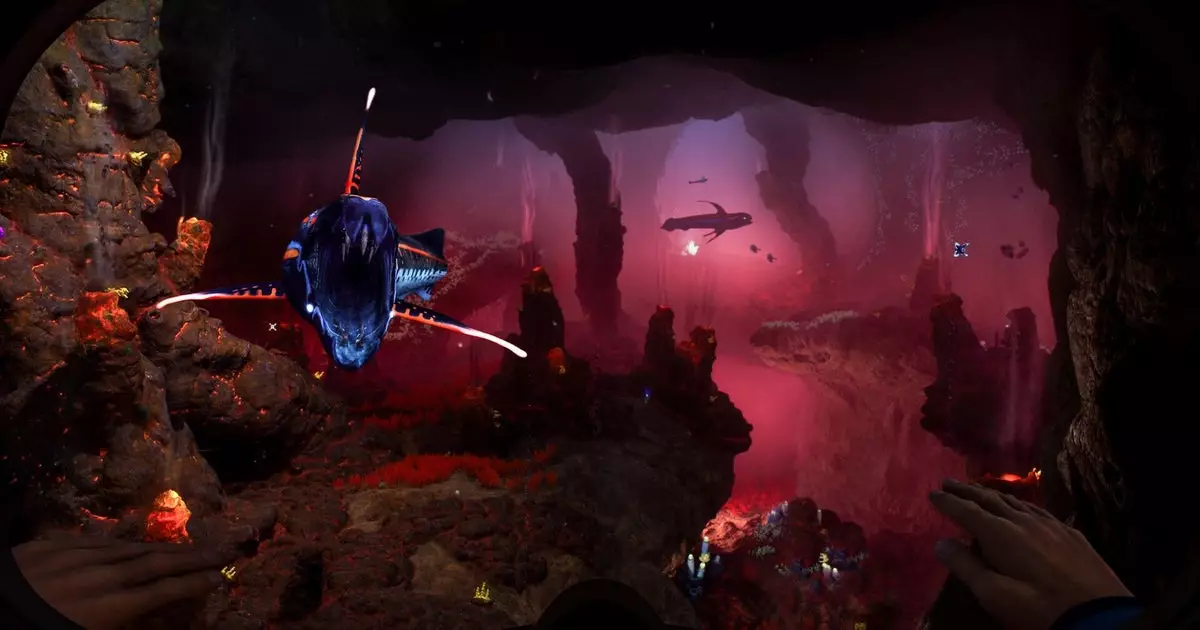The delayed launch of Subnautica 2 reveals far more than just a postponed release date; it exposes the murky undercurrents of corporate politics and strategic maneuvering within the gaming industry. The decision by Krafton to delay the highly anticipated sequel, pushing it into 2026, signals a wider struggle for control and profit maximization. The upheaval at Unknown Worlds, the studio behind the game, underscores how corporate interests often clash with creative vision and the expectations of the gaming community.
The ousting of senior executives—including co-founder Charlie Cleveland—speaks volumes about internal discord. Cleveland’s reaction, describing the situation as a “shock,” hints at a disconnect between the original developers’ perceptions of game readiness and Krafton’s cautious approach. Such leadership upheavals often reveal deeper tensions: is this merely a strategic delay, or a hardball tactic wielded to influence monetary outcomes? The fact that the delay aligns suspiciously with the potential loss of a hefty $250 million bonus further complicates the narrative. Power dynamics are at play, revealing how corporate stakes can vitiate the creative process and the trust of both employees and players.
The Financial Logic Behind the Delay: Profit Over Player Loyalty?
Krafton’s recent financial report paints a picture of extraordinary profitability, with record-breaking revenues and large executive bonuses. Yet, this prosperity seems to contrast with the decision to delay a game that, by all accounts, was near completion. Krafton’s public statements, citing the need for “more time” to ensure the right game at the right time, seem lukewarm in the face of evidence suggesting a different motive: safeguarding financial interests.
The timing raises questions about whether the delay is a strategic move to avoid releasing a product that might compromise the company’s bottom line or its ability to maximize bonus payments. The reported remarks from CEO Steve Papoutsis, denying any direct link between the delay and bonus withholding, appear to gloss over the reality that financial incentives often drive corporate decisions at this level. Companies frequently prioritize short-term profit maximization over long-term community goodwill, and the case of Subnautica 2 seems to embody this pattern.
Moreover, the fact that Krafton’s CEO earned over $3.9 million last year further underscores a corporate environment where financial gains are prioritized—sometimes at the expense of transparency and trust. The question remains: is this strategic delay a necessary safeguard for quality, or merely a calculated move to negotiate power and financial advantage? The truth likely hinges on the less transparent motives of high-level executives whose decisions are rarely scrutinized by the public.
The Impact on Creators, Fans, and Industry Integrity
The repercussions of this episode extend well beyond internal boardroom disputes; they threaten to erode consumer confidence and damage the relationship between developers and their audience. Fans of Subnautica 2, many of whom eagerly await the sequel’s release, are left disillusioned. Cleveland’s statement expressing disappointment over being stripped of the authority to publish the game underscores the human cost of corporate control.
Players are increasingly aware that game delays are often less about quality assurance and more about corporate strategy—financial calculations disguised as “development concerns.” When studios like Unknown Worlds are caught in corporate power struggles, it diminishes the perceived integrity of the industry. Trust, once broken, is difficult to rebuild, and persistent skepticism about developer motives risks undermining future engagement.
Furthermore, the industry must confront its reliance on “big money” dynamics, where mega-corporations wield disproportionate influence over creative endeavors. Krafton’s actions exemplify the dangers of prioritizing shareholder interests and bonus incentives over genuine innovation and community trust. This episode could serve as a cautionary tale, highlighting the importance of transparency and integrity in maintaining long-term industry health.
A Road Less Traveled: The Future of Gaming Development and Accountability
Looking ahead, the industry must grapple with the implications of such power plays. Clearer lines of accountability, transparent decision-making, and a reinvigoration of developer autonomy could help restore faith in the process. Gamers are no longer passive consumers; they are active stakeholders whose opinions can influence industry standards.
The case of Subnautica 2 underscores that profitability cannot come at the expense of creators’ integrity and community engagement. While corporate strategy is inevitable, a balance must be struck between shareholder returns and respecting the passion and trust of the gaming community. For developers and publishers alike, embracing transparency and communication could become the foundation for a healthier, more sustainable industry—one that values both its artistry and its audience.
In sum, the delayed launch of Subnautica 2 acts as a mirror held up to the industry, reflecting the ongoing tension between corporate greed and creative independence. The outcome of this conflict will undoubtedly shape the future landscape of gaming—whether it forges a path built on trust and innovation or spirals into further discord driven by financial motives.


Leave a Reply